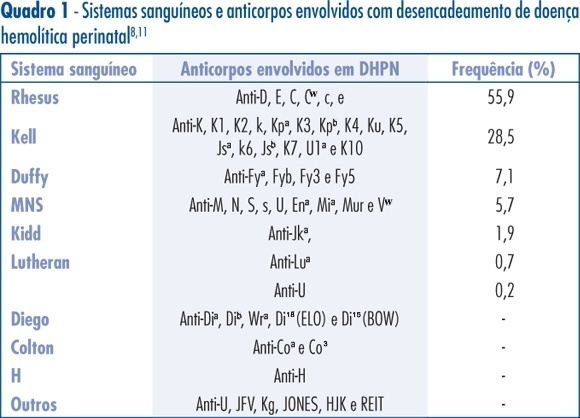Revista Brasileira de Ginecologia e Obstetrícia. 2009;31(6):311-319

Alloimmunization is the formation of antibodies when there is an exposition of the individual to non-self antigens, as it occurs, for example, in the transfusion of incompatible blood and pregnancies, in whom the fetus express in its sanguineous cells antigens exclusively of paternal origin. This article is restricted to the alloimmunization against erythrocytes antigens in obstetric patients. Almost all the anti-erythrocytes antibodies can be fit in one of the 29 systems of already recognized sanguineous groups, being more implied in the hemolytic disease of the newborn anti-D, anti-c and anti-Kell, followed by anti-C, anti-E, anti e, anti-Fyª and anti-Jkª. The research of irregular antibodies, to permit the diagnosis of alloimmunizated people, and the modern genetic techniques have better characterized these patients for the prophylaxis and prenatal segment. The traditional accompaniment of the gestations of risk for hemolytic disease of the newborn, with the spectral analysis of the amniotic liquid and the intraperitoneal transfusion, has being quickly substituted for the Doppler ultrasound evaluation in the middle cerebral artery, the intravascular transfusion guided for ultrasonography in real time, beyond improvements in the materials and the quality of the blood, that in set, have raised the survival of the attempting fetus. Doubtlessly, the correct application of the prophylaxis with use of anti-D is successful with potential to reduce the alloimmunization cases.
Search
Search in:


Comments